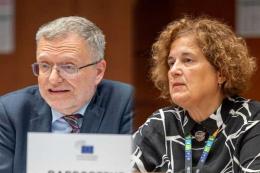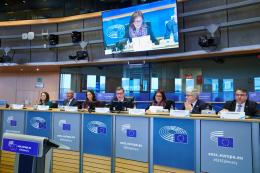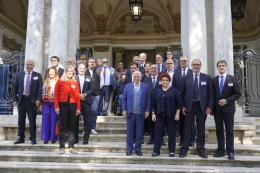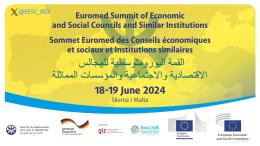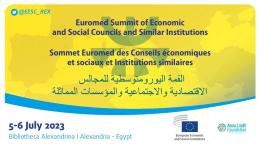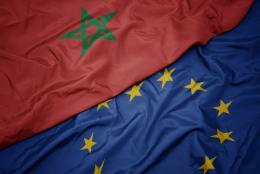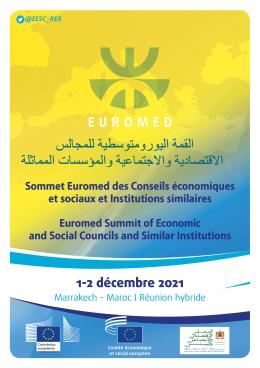European Economic
and Social Committee
Die Partnerschaft Europa-Mittelmeer
Die Beziehungen zwischen der EU und ihren südlichen Nachbarstaaten zählen zu den Prioritäten des EWSA. Dessen Arbeit umfasst ein breites Spektrum von Bereichen, wie die Beteiligung der Zivilgesellschaft am politischen und zivilen Dialog, den demokratischen Übergang, Jugendarbeitslosigkeit, nachhaltige Entwicklung, Mobilität und Zuwanderung, Handel, erneuerbare Energien und Unternehmensentwicklung.
Der EWSA setzt sich seit 1995 mit diesen Themen auseinander. Nach den Veränderungen in der Region im Jahr 2010 wurde eine Anpassung der Zielsetzungen vorgenommen:
- Unterstützung der organisierten Zivilgesellschaft in den Ländern, die sich im Übergangsprozess befinden, wobei sich diese Unterstützung insbesondere an Gewerkschaften und Arbeitgeberorganisationen sowie Frauen-, Jugend- und Landwirtschaftsverbände richtet;
- Pflege bilateraler Beziehungen mit den nationalen Wirtschafts- und Sozialräten in der Region sowie Schaffung der erforderlichen Voraussetzungen für die Einbindung der Zivilgesellschaft in den politischen Dialog in den südlichen Partnerländern;
- Erarbeitung von Stellungnahmen und gemeinsamen Berichten zu den zentralen politischen Herausforderungen in der Region;
- Veranstaltung regelmäßiger Treffen mit EU-Institutionen und internationalen Organisationen, um die Politik in Bezug auf die Zivilgesellschaft in der Region zu erörtern;
- Organisation eines jährlichen Gipfels der Wirtschafts- und Sozialräte und vergleichbaren Institutionen, auf dem Empfehlungen für wichtige Maßnahmen im Zusammenhang mit den größten Herausforderungen der Region an die politischen Entscheidungsträger der nationalen Regierungen und der EU ausgesprochen werden.

